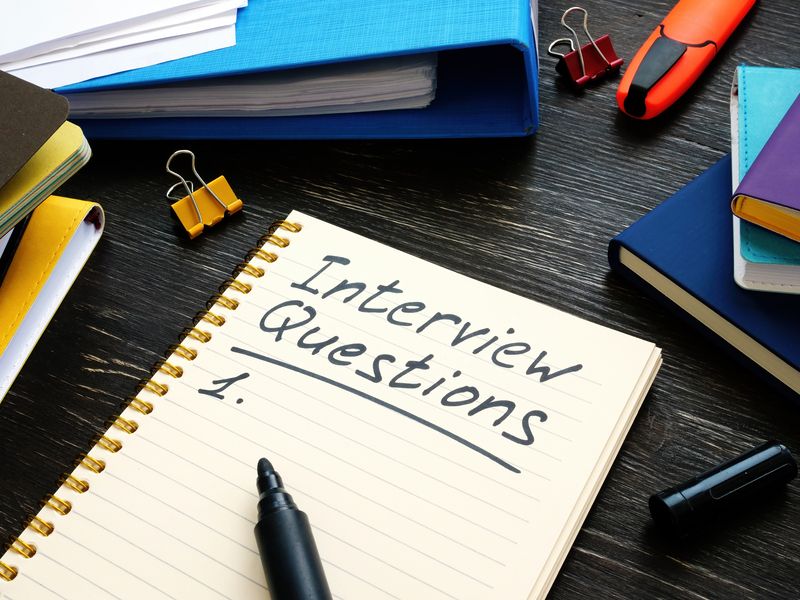What Is An Assessment Interview? And How To Use It To Improve Hiring

Have you considered adding an assessment interview in your hiring process? When the time comes to fill a position—especially when it comes to filling many positions at once—posting the job opening is merely the first step. Once people start applying, things can get really busy really fast.
The truth is that not all applicants are created equally, and having a deep pool of candidates from which to choose can actually make your job harder rather than easier. How can you make sure that you get to the very best candidates as quickly as possible? How do you know they will be a good fit with your company culture? How can you make headway on hiring when there are hail-Mary applicants and irrelevant profiles floating around?
In short, how can you more effectively dig through a mountain of applicants to find the buried treasure?
Along with our many other high-volume hiring tips, we’re here today to show you how you can efficiently and quickly find the right person for the job.
Your secret weapon? Assessment interviews.
What Is an Assessment Interview?
An assessment interview is a type of structured interview in which each job applicant is asked the same series of questions in order to determine basic competency. It can also help you determine some of those important soft skills and characteristics that may not show through from a resume or CV alone.
The focus of these questions differs from pre-employment skills or aptitude tests, which are often done online or with pencil and paper (although they may also be used at some point). Often the questions will center around scenarios and hypothetical situations to gauge how a candidate will respond and react.
An assessment interview is a more technical approach used to assess:
- Attitude
- Communication
- Skills
- Abilities
- Knowledge
In short, it’s an interview to assess basic applicant competence and overall “fitness” for the job.
Such tests efficiently weed out the least-suitable applicants, leaving a smaller, better-qualified pool to undergo the more costly personalized aspects of the process… If more service firms took this approach at the start of the hiring process, they would reap a better workforce and streamline a function that consumes enormous resources. (Harvard Business Review)
Strangely enough, though assessment interviews have proven effective in narrowing candidate pools and improving hiring effectiveness, they’re still not implemented as widely as they could be as part of the decision making process.

Differences Between Standard Interviews and Assessment Interviews
As you may know, a standard interview may be structured or unstructured and focuses on you and your background, reasons for leaving a current job, why you want to work for a company and other similar questions.
Assessment interviews can target soft skills such as workplace behaviors, organization, teamwork, and communication. Job seekers may be given hypothetical situations so that you can see how the job candidate might handle challenges and/or unforeseen circumstances.
Assessment interviews can also be more technical and help you to evaluate the hard skills of a candidate without relying on tests and challenges.
To determine the technical skills of an applicant, an assessment interview may include questions on topics such as:
- Explaining processes
- Discussing useful certifications
- Describing systems they are familiar with and tools used
- Discussing programming languages and the situations where different ones are best used
At this point in the process, you’ll be able to determine how the interviewee might fit into your company and whether they have the skills that would make them the best choice for your open position.
The assessment interview narrows the hiring pool to people who are qualified, experienced, certified, and so on. Additionally, it helps you to determine a candidate’s attitude, enthusiasm, communication style, and other soft skills and if they would be the best fit.
Reasons to Include Assessment Interviews in Your Hiring Process
If you are not already using assessment interviews, you may wonder whether they could really be worth the hassle. Perhaps you’re barely keeping ahead of your deadlines as it is. Do you really have time to set up assessment interviews and add an entirely new step in an already time-consuming hiring process?
If that’s your gut reaction, we get it. But it might be helpful to think about the problem the other way around.
Ultimately, an assessment interview will help you save time in the long run. Since it will help you narrow your field of potential candidates and eliminate less-than-qualified job seekers, you will have fewer interviews to conduct and a more consistently qualified pool from which to conduct them.
The interview assessment process will also save you from two frustrating potential scenarios:
- Squandering valuable time interviewing candidates who are unqualified or under-qualified
- Finding a candidate whose personality seems the best fit only to realize belatedly they are not actually skilled or experienced for the position.
The bottom line? Interview assessments will save you time and energy by allowing you to narrow your search and focus your energies. Best of all, with Hireflix’s one-way video interviewing software, the process has never been easier to set up and implement.
Conducting an Assessment Interview
If you’re considering adding assessment interviews to your recruitment process, there are a few factors you will want to take into consideration.
When Assessment Interviews Are Most Needed
Assessment interviews come in handy in almost all hiring processes. Designing questions to help gauge a candidate’s personality, strengths, and weaknesses is key to the process. No matter the industry, a question like, “How would you react to constructive criticism you disagree with?” will help you determine how an interviewee might act in a difficult situation.
However, when looking to evaluate technical skills, there are several fields in which assessment interviews are especially helpful:
- Engineering
- Science-based fields
- Software
- IT
In skills-based fields such as these, an assessment interview can eliminate job seekers who do not have the basic skills or competencies to be a good fit for the position.
This is especially true if you are conducting high-volume hiring. The more positions you are trying to fill, the less time you will want to spend wading through resumes and conducting final interviews. In that regard, assessment interviews will help lighten your load.
The Assessment Interview Process
Perhaps this is the first time you have set up your assessment interview process. Maybe it’s been a while and you’re feeling rusty. Or it could be that you’re just curious to see if you’re following best practices, particularly in high-volume hiring situations.
Either way, when it comes to establishing your assessment interview process, you have some options.
You’ll first need to determine the stages of your interviewing process. Perhaps with a very technical position, you may include a skills test first as a screening.
You may wish to then follow up with a structured interview, asking each applicant the same series of questions or hypothetical scenarios to better judge their personality and work expertise. A one-way video interview is a perfect tool to use at this point as you’ll ensure each question or hypothetical situation is worded the same for each candidate. Comparing answers from one to another is that much easier.
Those initial steps will help you to find several perfect candidates to invite for a more comprehensive in-person or remote video interview. Instead of spending time interviewing many candidates in-person with rushed and shorter discussions, you’ll be able to spend more time with each person having meaningful conversations about them and their suitability for the role.
Once you determine the stages of your assessment process based on the types of competencies you would like to evaluate, it will be time to formulate your assessment interview questions.

Common Questions to Ask During Assessment Interviews
The types of questions you add to your assessment interview, will, of course, depend in part on the general field and the specific type of position(s) you are trying to fill.
For companies in the business sector, you’ll want to include questions and scenarios that revolve around the department or industry. You may also include questions that help gauge how well a person might interact or work with superiors, other departments, or teammates. Scientific industries may want to ask technical or skill-based questions. Roles in customer service or retail industries may require questioning to determine a candidate’s personality and skills with interacting with people.
Most assessment interview questions fit into the following categories.
- Aptitude questions. Not just limited to scientific or technical industries, aptitude questions are a great way to determine industry knowledge. Of course, in more technical fields such as math or science, questions could be similar to “What number is missing from this series?” or “Is the following statement provable or unprovable?” The nature of the aptitude questions will change depending on the field, and you use questions like these to determine someone’s proficiency. For example, a human resources role may have questions about compliance, a project manager role may be asked about processes, and a machinist role may include questions about machine operation.
- Personality questions. These questions judge a candidate’s personality development and character traits. “Do you work better in a team or on your own?” and “Tell us about the last time you missed a deadline” may be questions you might consider including.
- Cognitive questions. Cognitive questions will help you determine if a candidate has the reasoning and problem-solving skills required for the job. You may want to include questions like “According to this graph, what is happening with productivity from quarter to quarter?” or “How would you prioritize this list of daily tasks?” These types of questions are open-ended and often don’t have one correct answer, but are designed for you to hear how the person thinks and would tackle a difficult situation or a problem to be solved.
When coming up with your list of assessment interview questions, always be sure to check in with your team. Often, they can fill in gaps and help brainstorm the best types of questions to include so that the candidates without a particular skill are screened out and only the best-suited candidates are moved down the hiring pipeline.
The Bottom Line on Assessment Interviews
Assessment interviews are one of the top ways you can narrow down your pool of applicants and spend time only on the best potential hires. They are especially helpful in cases of high-volume hiring, during which time-to-hire speed is of the essence.
Fortunately, Hireflix’s one-way interview platform can help you conduct assessment interviews easily and effectively. Our asynchronous interview software, combined with our system of seamless automations, allows you to set up your questions and begin collecting applicant responses and reviewing them with your team right away.
Click to try Hireflix and see how it can do the heavy lifting and help you conduct a stellar assessment interview.

